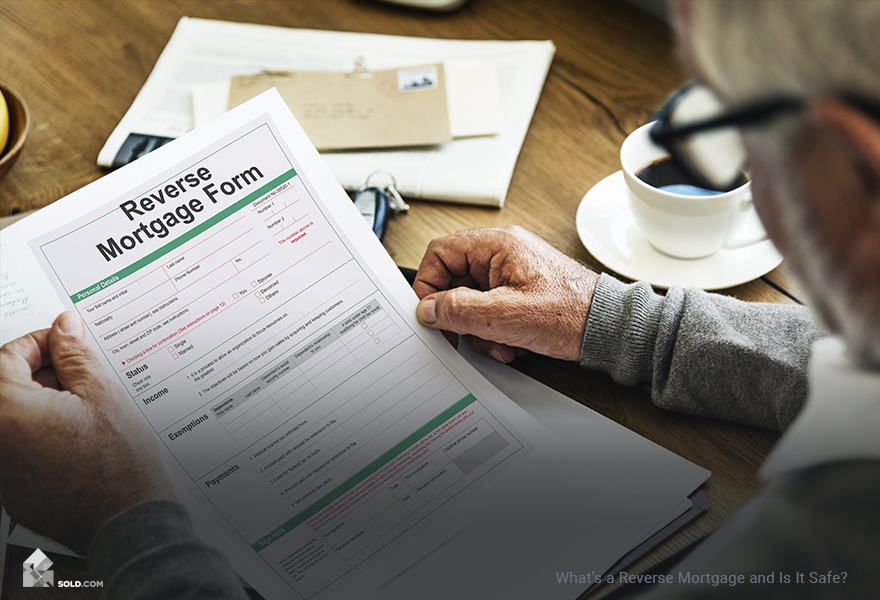
The reverse mortgage was created in 1961 with good intentions. A Savings and Loan officer wanted to help the widow of his high school football coach stay in her house after her husband passed away, so he created a type of home equity loan that didn’t require mortgage payments. Instead, the balance of the loan (including interest) was due once the widow died or moved permanently from the residence.
Throughout the 1960’s this type of loan was lauded as a great way to help seniors bridge the gap between social security and their financial needs. And in the 1980’s the government began insuring reverse mortgages and regulating their administration.
Unfortunately, these good intentions and government regulations haven’t been enough to prevent some seniors from getting taken advantage of. So if you or your loved one are considering a reverse mortgage, here are some things to think about.
The Basics
To qualify for a reverse mortgage, you must be at least 62 years old and own your home outright or with a very small mortgage. The loan amount is the lesser of the appraised value of your home or the Federal Housing Administration (FHA) limit of $636,150. You can receive the money in a lump sum, a fixed monthly payment, a letter of credit, or a combination of the three.
You can use the money for anything you want, from medical expenses to your day-to-day cost of living, but you must make sure you pay your property taxes, insurance, and keep up with the maintenance on your home. If you fail to do any of these things, the lender will consider you in default and will foreclose on your property, forcing you to either pay off the loan in full — or move.
Provided you comply with the terms of the loan, it will be considered due when you either pass away or have been living somewhere else for at least 12 months. At that point, the lender will foreclose on the property, sell it, and if there’s money left after the lender has paid itself back, the difference will go to you or your heirs.
Financial planners recommend obtaining a reverse mortgage as a last resort. They suggest liquidating your market portfolio and reducing living expenses before tapping into the equity of your home.
For Whom a Reverse Mortgage Makes Sense
Reverse mortgages make sense for people who don’t plan to move and want to access the equity they’ve built in their homes in order to pay for medical expenses or save for a rainy day. Some people use it to pay off their current mortgage or to improve their monthly cash flow.
You just have to make sure that you still have enough money to pay for your property taxes, homeowners insurance, and to keep up with the maintenance on your house.
For Whom it Doesn’t
Anyone who is planning on moving within five years should not obtain a reverse mortgage. The closing costs and interest rates for this type of financing are a lot higher than they are for traditional mortgages and make it cost prohibitive:
- Origination fee: the greater of $2,500 or 2% on the first $200,000 of the loan amount, then 1% on any amount over $200,000. The origination fee is capped at $6,000.
- Up-front mortgage insurance paid at closing: 2% of home’s value.
- Ongoing mortgage premium: 0.5% of home’s value, paid annually.
- Traditional closing costs: an appraisal ($300-$400); home inspection (average cost $315), title insurance (a one-time premium that varies between $300-$2,000 depending on where you live).
To help you decide whether a reverse mortgage is right for you, get some financial counseling from an organization like AARP or HUD. One of these professionals will help you determine what your financial needs are and the best way to get those needs met.
If your spouse is under the age of 62, you should consider waiting until they reach that age. No one under the age of 62 may be party to a reverse mortgage and you can’t add your spouse later. So when you pass away, your spouse will have to move. And there may not be any money left over after the sale of the house to pay for their living expenses.
If you’re in poor health and won’t be able to keep up with the maintenance on the house, or if you might need to move to a nursing facility, you should definitely not get a reverse mortgage. While it might seem attractive because of the money you’ll be able to access (and capital gains you’ll be able to avoid), selling your home is probably a better option if you need liquidity.
Reverse mortgages can be a helpful financial tool for seniors who are in good health and in need of extra room in their monthly budget. But reverse mortgages can also put seniors in financial straits if they are taken out at the wrong time or for the wrong reasons. Before you or your loved one decide whether or not a reverse mortgage is the right solution, make sure you seek the guidance of a professional.

